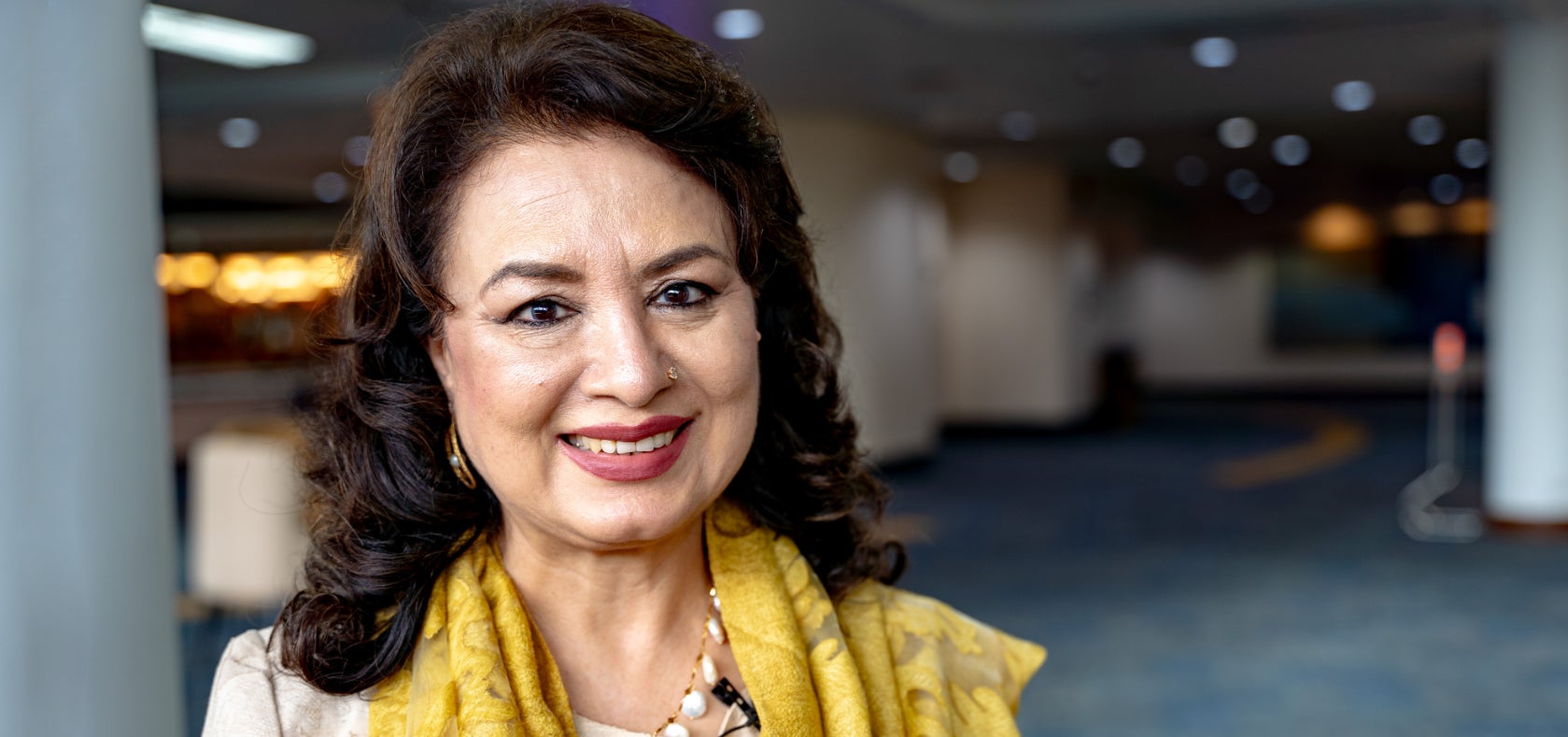Take Five Nepal: “Stronger women’s agency and amplified collective voices are the key to advancing gender equality"
Date:

Bandana Rana (born August 15, 1961, in Kathmandu, Nepal) has three decades of experience promoting women's rights and gender equality at local, national, regional, and global levels. She is one of the founders and a past President of Saathi, a pioneering NGO working on violence against women and girls in Nepal.
Bandana Rana worked with Nepal Television as an editor/presenter for twenty years and founded Sancharika Samuha (Women's Media Forum) in Nepal, serving as its first elected President. She has extensive experience leading women's rights advocacy programs with a focus on media interventions and enhancing participatory communication at all levels: community, national, and regional. She has led programs and studies related to gender-based violence (GBV) in conflict situations. Bandana Rana also served as the principal consultant for the Ministry of Peace and Reconstruction to develop the National Action Plan on UNSCR 1325 and 1820 in 2010/11 and was actively involved in its localization, implementation, and monitoring. She has conducted training programs on the UNSCR 1325 National Action Plan in Afghanistan, Northeast India, Iraq, and many other countries. She is the board Chair of the Global Network of Women Peacebuilders (GNWP). She was a member of the High-Level Advisory Group for the Global Study on the Implementation of UNSCR 1325. She was also a member of UN Women's Global Civil Society Advisory Group and the Advisory Group for Women's Peace and Security for UN ESCAP. She is currently serving as a member of the UN CEDAW Committee, first elected in 2017.
Could you share what inspired you to become an activist? What experiences led you to dedicate your life to this cause?
The euphoria of the vibrant women’s gatherings, the rich cross-communication, and the realization of the collective power of women’s movements at the Beijing conference inspired me. That experience shaped my dedication to this cause.
In your extensive experience working with various organizations advocating for women's rights, what have been some of the most challenging aspects of advancing gender equality in Nepal?
Some of the most challenging aspects include deeply rooted harmful stereotypes and mindsets, persistent violence against women and girls, and the failure to implement laws and policies, which leads to persistent impunity. We need more effective programs that engage men and boys to challenge these stereotypes and promote gender equality at all levels, from local to global.
It is important to advocate for gender equality in every sphere of life: family, education, society, and profession and challenge traditional gender roles and celebrate all gender identities and expressions.
What has been your experience as a CEDAW Committee member?
I feel gratified to be engaged at a global level in making member states accountable for ending discrimination against women in all spheres. It feels good when you see the recommendations provided by the CEDAW committee being implemented by the concerned member country and knowing that this is a most powerful mechanism for accountability.
With significant global movements like the Beijing Declaration and Platform for Action nearing its 30th anniversary, how do you assess the landscape of women's rights and gender equality in Nepal? What are the most notable changes you have witnessed in the last 30 years?
In the last 30 years, I’ve seen stronger women’s agency at different levels and amplified collective voices, these are key to advancing gender equality. Laws have been adopted on domestic violence, sexual and reproductive rights, among many others, to end gender discrimination. Women’s participation in the political sphere has increased through the effective application of quotas and gender-sensitive electoral policies. Media has played a stronger role in shaping societal attitudes towards women, with more positive portrayals a s well as featuring male role models who champion women’s rights and gender equality.
As a leader in the field of women’s rights, what three critical issues would you like to highlight for urgent attention from national authorities in Nepal?
The three critical issues I would highlight are: effective implementation of laws, particularly related to family violence and sexual violence; women’s increased participation in decision-making; and recognition of unpaid care work and additionally, we must ensure adequate funding for gender equality initiatives and strengthen global cooperation to address these challenges.